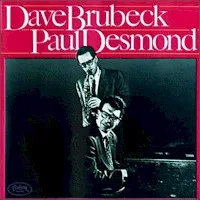Time: 75:57
File: MP3 @ 320K/s
Released: 2004
Styles: Fado, World
Art: Front
Personnel:
Guitar (Portuguese) – Luis Guerreiro
Acoustic Guitar – António Neto
Bass (Acoustic) – Fernando Baptista De Sousa
Piano – Tiago Machado
Trumpet – Guy Barker
The new queen of the Portuguese folk music known as fado shines in the impressive Mariza Live in London, a 2003 concert recorded at the Union Chapel in London. The twenty something Lisbon resident has been hailed as the successor to fado legend Amália Rodrigues; now, after two well-received CDs, comes Mariza's first filmed concert performance, and it is stunning.
No wonder fado has been compared to the blues: the actual musical content is different, but in terms of both origin (both come from a variety of cultures, in this case including strains of Spanish, Brazilian, and African sounds) and lyrical bent (with its constant element of saudade, roughly translated as yearning or longing, fado, like blues, is mournful, soulful music), it's every bit as deep.
Mariza is backed primarily by acoustic guitar, acoustic bass guitar, and "Portuguese guitar," a 12-string instrument that looks something like a lute and sounds a bit like a Greek bouzouki; there is some piano as well, and Guy Barker's muted trumpet provides "O Deserto" with a pronounced jazzy feel. But the singer is the main attraction here, and the power and passion of Mariza's delivery on "Barco Negro" and nearly all the others in the 16-song set, including more upbeat, celebratory numbers like "Oica La o Senhor Vinho" (the introductions are in English, but the tunes are all in Portuguese) are undeniable. Add to that Mariza's black cloak and clothing, her stylish, peroxide-blonde perm, and her highly theatrical movements and expressions, along with the darkened chapel and superb lighting, and you've got an audio-visual experience so dramatic and moving that it easily renders the language barrier irrelevant. ~Sam Graham
Guitar (Portuguese) – Luis Guerreiro
Acoustic Guitar – António Neto
Bass (Acoustic) – Fernando Baptista De Sousa
Piano – Tiago Machado
Trumpet – Guy Barker
The new queen of the Portuguese folk music known as fado shines in the impressive Mariza Live in London, a 2003 concert recorded at the Union Chapel in London. The twenty something Lisbon resident has been hailed as the successor to fado legend Amália Rodrigues; now, after two well-received CDs, comes Mariza's first filmed concert performance, and it is stunning.
No wonder fado has been compared to the blues: the actual musical content is different, but in terms of both origin (both come from a variety of cultures, in this case including strains of Spanish, Brazilian, and African sounds) and lyrical bent (with its constant element of saudade, roughly translated as yearning or longing, fado, like blues, is mournful, soulful music), it's every bit as deep.
Mariza is backed primarily by acoustic guitar, acoustic bass guitar, and "Portuguese guitar," a 12-string instrument that looks something like a lute and sounds a bit like a Greek bouzouki; there is some piano as well, and Guy Barker's muted trumpet provides "O Deserto" with a pronounced jazzy feel. But the singer is the main attraction here, and the power and passion of Mariza's delivery on "Barco Negro" and nearly all the others in the 16-song set, including more upbeat, celebratory numbers like "Oica La o Senhor Vinho" (the introductions are in English, but the tunes are all in Portuguese) are undeniable. Add to that Mariza's black cloak and clothing, her stylish, peroxide-blonde perm, and her highly theatrical movements and expressions, along with the darkened chapel and superb lighting, and you've got an audio-visual experience so dramatic and moving that it easily renders the language barrier irrelevant. ~Sam Graham
Live In London




















